The Royal Thai Navy is using the country's repressive criminal defamation and Computer Crimes Act laws to sue Morison and a colleague, Chutima Sidasathian, over a 41-word paragraph, written by Reuters journalists and republished in July 2013 in Phuketwan.
The Phuket journalists have been asked to ''apologise'' but will only consider saying they are sorry once the Pulitzer Prize-winning Reuters authors have apologised.
The Reuters journalists, Reuters and other news outlets in Thailand and overseas that published the same paragraph have not been charged.
Only the Phuketwan journalists face seven years in jail.
''This vindictive attempt to silence Phuketwan shows how effective we've been in exposing the shabby treatment of Rohingya boatpeople in Burma and Thailand,'' Morison said today.
''The discovery of the jungle camp graves last month and the misery on the boats at sea proves the truth of what we've been reporting for many years now.''
Jenny Braddy, who this week nominated her brother for the prestigious Australian award, joined her sisters in writing an open letter last year to the most senior Navy commanders in the US, Britain, NZ and Australia.
''We believe the reputable navies of the world all support free speech and a free media in a free world,'' the sisters wrote.
''We are certain we don't have to tell you gentlemen about genocide, or why WWII was fought. Thailand, you will recall, is where thousands of Allies died during that same war on the Burma railway, the Death railway.
''We would hate to think they died in vain and that the lessons of democracy have not been learned in Thailand, of all places. But that appears to be the case.
''It's understood in all democracies that no military should be beyond criticism. No military should be a law unto itself.''
The trial of the two Phuket journalists is set to continue on Phuket from July 14-16 unless Prime Minister Prayuth Chan-o-cha reacts to a request from the pair to ask Thailand's Attorney General to kill the case.
''We don't want a foolish action based on rumor, ego and paranoia to damage Thailand's reputation,'' Morison said.
''The Royal Thai Navy is a fine organisation but even its most senior commanders appear to be reluctant to recognise that officers are human and make mistakes.
''Thailand's standing in the international community is far more important than foolish pride.
''There is still time to end this farce without the world looking on at a trial that will showcase Thailand's past, not its future.''
Morison said he was embarrassed to be nominated for the important Australian award but grateful to his sisters and others for their continued support.
AS HE MARKS 50 years in journalism, my brother Alan Morison has found himself narrating one of the big stories of the 21st century and also being unwillingly at the centre of a timeless battle for freedom of speech.
In covering the saga of the Rohingya boatpeople fleeing from persecution in Burma, (Myanmar) my brother unleashed the hatred of the Royal Thai Navy, which has imposed trumped up charges to threaten him with a maximum of seven years in jail.
The discovery of graves in secret human trafficking camps in Thailand and Malaysia and encounters with thousands of Rohingya and Bangladeshis on smugglers' boats in the Bay of Bengal and the Andaman Sea have proved the accuracy of all that he and his co-charged colleague Chutima Sidasathian have been writing for years.
If the pair of them ''apologise,'' the charges could be dropped. But the journalists have done nothing wrong.
The paragraph that the Royal Thai Navy used as a ploy to charge the journalists was actually written by two Reuters reporters who went on to win the prestigious Pulitzer Prize in 2014 for a series that contained the 41 controversial words.
Alan and Chutima have continued to insist that they will consider an apology once the paragraph's authors, the Reuters journalists, have apologised. But the Royal Thai Navy has not charged the Reuters journalists, only the two people they hate.
It's obvious that the Navy has sued Alan and Chutima and the company behind their small Phuket-based news outlet for just one reason: it wants their coverage of the Rohingya saga and all revelations about the boatpeople stopped.
Alan and Chutima, who created the phuketwan.com online news outlet in 2008, teamed with the South China Morning Post newspaper the following year to reveal the inhumane ''pushbacks'' from Thailand by the military.
Hundreds of boatpeople died at sea on boats that were towed out to sea by the Thai military and cut adrift, without motors.
Once Alan and Chutima discovered what was happening and got the story out, the horrifying process was stopped.
The journalists and the newspaper later won Scoop of the Year at the Hong Kong News Awards and the general news prize at the Human Rights Press Awards in Hong Kong ''for exposing a secret Thai army policy of detaining Rohingya boatpeople from Myanmar [Burma], towing them to sea and abandoning them.''
Later the Phuketwan team shared the Society of Publishers in Asia (SOPA) Award for Excellence in Investigative Reporting and a second Award for Excellence in Human Rights Reporting.
Their coverage of the Rohingya exodus, targetted in 2014 by the Royal Thai Navy using charges under criminal defamation and Thailand's repressive Computer Crimes Act, continues.
Alan and Chutima say the navy will have to kill them to stop them.
The small but influential Phuketwan site also continues to report on corruption, the vital safety of tourists and residents, rip-offs, environmental issues and many other topics, funded mostly by my brother's life savings.
He says he wants to give something back because journalism has been good to him.
The United Nations human rights organisation, Human Rights Watch, Reporters Without Borders, the Committee to Protect Journalists, the International Commission of Jurists, Australia's Media, Entertainment and Arts Alliance and many other NGOs and rights groups have spoken out publicly and called on the Navy to drop the charges.
My brother moved to Thailand in 2002 and has helped to train young journalists on Phuket since he arrived. He is also convinced that older journalists still have plenty to offer, especially overseas.
In a long career in Australia and Britain, my brother was at the forefront of change, becoming founding editor of The Saturday Extra section of The Age when the newspaper reached a record 300 pages and also steering the newspaper's internet site through the early and mid '90s, when The Age led the world in live sports coverage.
He won a Walkley Award for headings in the 1980s and shared a second Walkley when he was assigned from Melbourne to join the Sydney Morning Herald's online coverage of the 2000 Olympic Games.
My brother's career began on the Herald, Melbourne's afternoon newspaper, in 1966.
He has carried on from the era of the Beatles and smoking in offices to twitter and terrorism, with his belief in the capacity of journalism to inform and change the world still undiminished.
I believe he is an excellent ambassador for Australia in Asia and a worthy contender for Senior Australian of the Year.

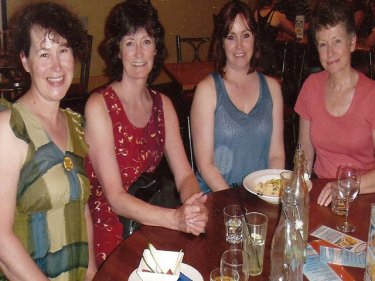

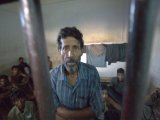


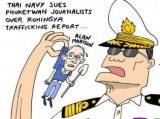
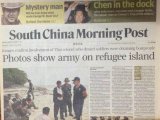
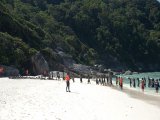


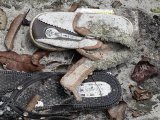

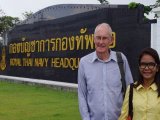
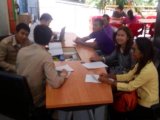


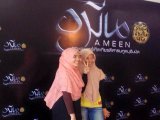
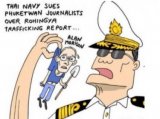




(moderated)
Posted by Mal on June 9, 2015 10:17
Editor Comment:
If there's ever an award for brainless trolling, you're the clear winner, Mal. Only good at one thing, though, eh?